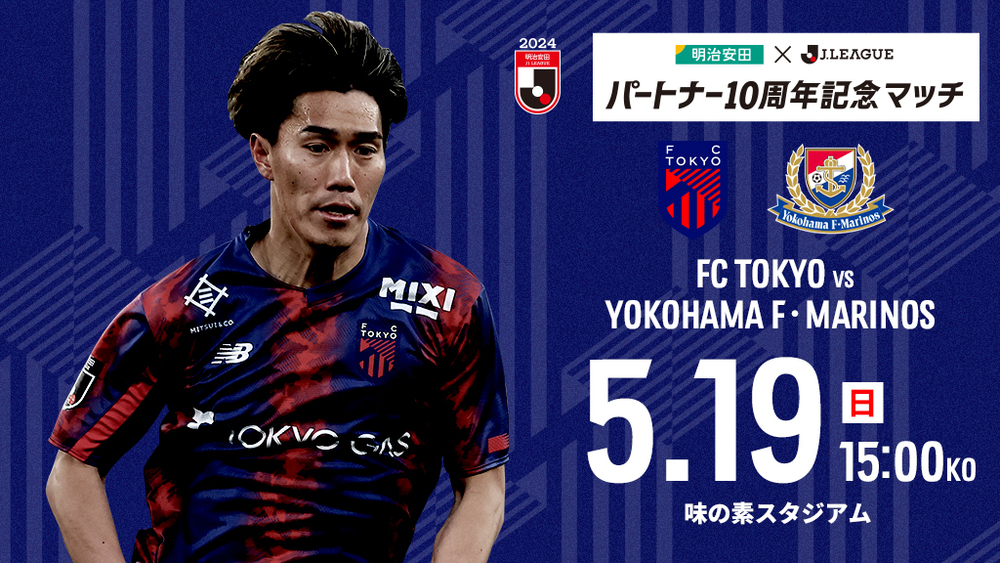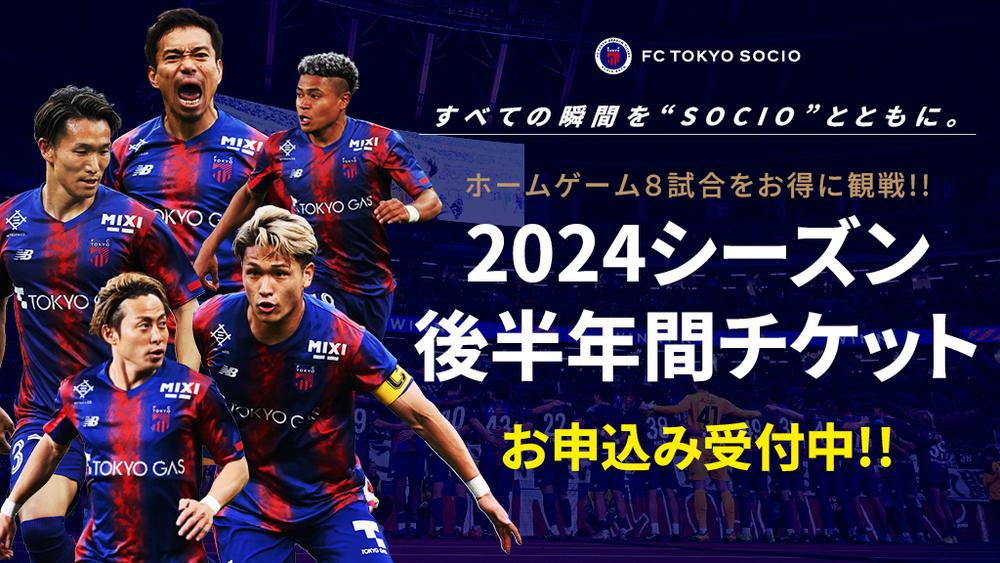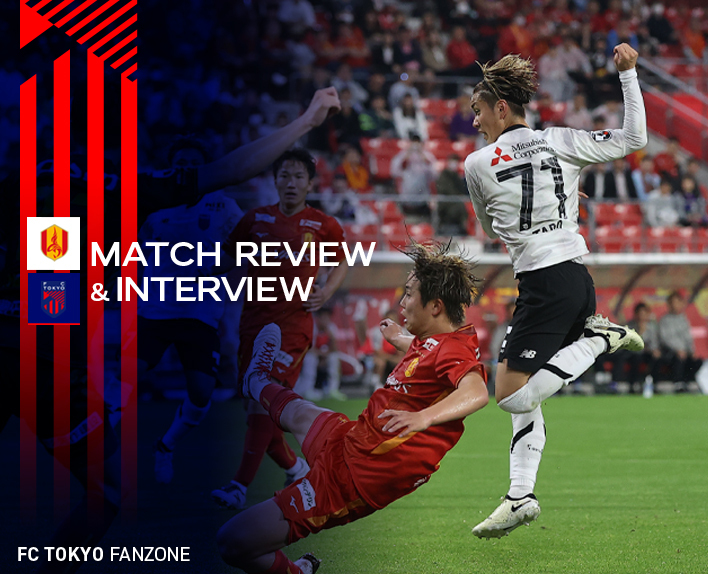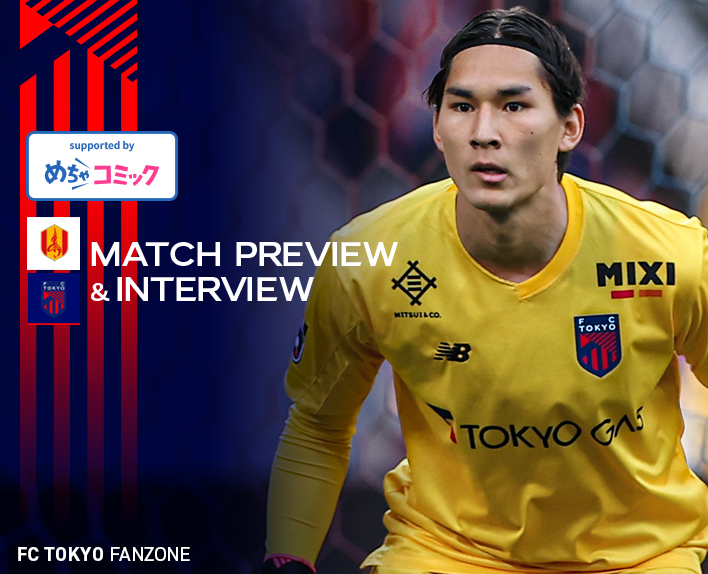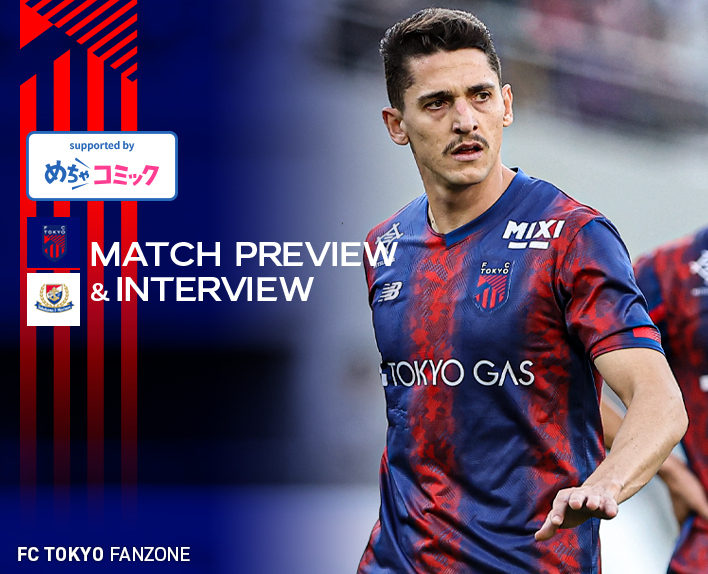Match Review
The away match against Nagoya Grampus. The winning streak in the league was halted at three matches due to a draw in the previous game, but that is why we must remain focused and seek results in this game.
The starting eleven has three changes from the previous match against Kashiwa Reysol. Goalkeeper Taishi Brandon NOZAWA, who returned from the U-23 Japan national team, makes his starting return since the match against Kashima Antlers in Round 7. Yasuki KIMOTO is utilized as a center-back in a match against his former club, and Kei KOIZUMI, who has completed his suspension, is placed in the defensive midfield. Additionally, Ryotaro ARAKI, who has been focusing on recovery due to an incident during the U-23 Japan national team match, has made his return and is included on the bench.
The tight schedule with three days in between is the same for both teams. The match, which is set to take place on 'J League Day' on May 15, kicked off at 19:03 amidst heavy rain that started just before the match.
1st HALF - Unable to find an attacking option, conceding a one-point lead
The first chance came in the 4th minute of the first half, when Kosuke SHIRAI, the right side back who overlapped from the center, delivered a low cross in the negative direction. Kota TAWARATSUMIDA aimed for it with a direct shot using his right foot, but unfortunately, the ball went just over the bar.
In the 8th minute of the first half, Diego OLIVEIRA, who received the ball in the front line, turned and faced forward, then struck with his right foot from long range towards the goal. Although it went straight to the opposing goalkeeper, he showed an aggressive attitude from the start.
Tokyo initially took the offensive, but Nagoya set up a compact 4-3-3 formation, solidifying the center, making it difficult to find a way to attack.
The back-and-forth battle continued, with neither side able to create shooting opportunities, but the match took an unexpected turn in the 30th minute of the first half.
While attempting a difficult build-up from deep on the left side of their own territory, they were pressed by the opponent, resulting in a foul called on Masato MORISHIGE in the penalty area, giving Nagoya a penalty kick. This was converted by Kasper JUNKER, leading to them conceding the opening goal for the third consecutive match.
Tokyo intensifies pressure from the front line in anticipation of a counterattack. They aim to penetrate the opponent's territory by connecting precise passes.
In the first half's additional time, a free kick from Nagoya's right side was powerfully met in the center, shaking the net, but this was ruled offside with the support of VAR, resulting in a halftime score of 0-1.
How will we break down Nagoya, who aims for a counterattack while creating a 'red wall' by tightening the center? The strategy will be carried over to the second half.
2nd HALF - The return of "Taro"'s counterattack was not enough
Tokyo attempts to break through Nagoya's solid defense. In the 5th minute of the second half, Diego TABA switches to his left foot for a shot after a cutback. In the following 6th minute of the second half, from the left side, Takuya TABATA's right-footed cross finds Teruhito NAKAGAWA and Shirai, but they are unable to shake the goal net.
While looking for attacking options with angled passes, vertical passes from a wedge, and side changes, the bench made a move in the 16th minute of the second half. Kuryu MATSUKI, who excelled in the U-23 Japan national team, and Araki were both brought on to the front line to seek a breakthrough.
However, the next goal was scored by Nagoya. In the 21st minute of the second half, player Junker received a long ball and spread it to the left towards the front line. Player Izumi, who received this pass, then spread it to the center, and player Junker, who had made a run forward, struck with his left foot after a one-touch to make it 0-2.
In the 26th minute of the second half, after a loose ball from a left corner kick by Nagoya was thrown in from the right, Kasper JUNKER's header at the near side went over the goalkeeper's head and into the goal. A hat trick was allowed.
Tokyo, aiming for a counterattack, brought in Yuto NAGATOMO and Jája Silva in the 27th minute of the second half. This substitution leads to a counterattack goal.
In the 33rd minute of the second half, after a throw-in on the right side, Nagatomo connected the play and dashed into the space behind. From there, he received a superb through pass from Takahiro KO and, while falling, made a return pass, which was met by Araki in the center. Returning to the pitch, "Taro" immediately made an impact by scoring a goal that encouraged the team.
In the 41st minute of the second half, Matsuki picked up a loose ball that was knocked down at a high position on the left side and dribbled. The opponent's sliding block, which tried to stop the grounded early cross, headed towards the goal but was cleared just before it could become an own goal, unfortunately resulting in no score.
They launched a fierce attack during the 4 minutes of added time. They created a close chance from a set piece, and despite Araki's long-range shot and Matsuki's decisive shot, they were unable to change the score as they continued to assault the Nagoya goal until the end.
Although there was good news about Araki's return goal, it was a frustrating defeat away at Nagoya. This marked the first loss in five league matches.
MATCH DETAILS
<FC Tokyo>
STARTING Ⅺ
GK Taishi Brandon NOZAWA
DF Kosuke SHIRAI/Masato MORISHIGE/Yasuki KIMOTO/Kashif BANGNAGANDE
MF Takuto UHI (40th minute: Riki HARAKAWA)/Kei KOIZUMI/Teruhito NAKAGAWA (16th minute: Ryota ARAKI)
FW Diego Oliveira (16th minute: Kuryu MATSUKI)/Kota TAWARAZUMIDA (27th minute: Jaja Silva)/Soma ANZAI (27th minute: Yuto NAGATOMO)
SUBS
GK Tsuyoshi KODAMA
DF Henrique TREVISAN
GOAL
33 minutes into the second half: Ryotaro ARAKI
<Nagoya Grampus>
STARTING Ⅺ
GK LANGERAK
DF Akinari KAWAZURA/Kennedyegbus MIKUNI/Haruki YOSHIDA
MF Masahito ONO (substituted in 68th minute: Ken HBAI)/Keiya SHIIHASHI/Sho INAGAKI/Tsukasa MORISHIMA (substituted in 82nd minute: Takuji YONEMOTO)/Takuya UCHIDA (substituted in 68th minute: Katsuhiro NAKAYAMA)
FW Casper JUNKER (substituted in 82nd minute: PATRIC)/Kensuke NAGAI (substituted in 58th minute: Ryuji IZUMI)
SUBS
GK Yohei TAKEDA
DF Ha Chan-Rae
GOAL
33rd minute of the first half: Kasper JUNKER / 21st minute of the second half: Kasper JUNKER / 26th minute of the second half: Kasper JUNKER
[Peter CKLAMOVSKI Coach Interview]
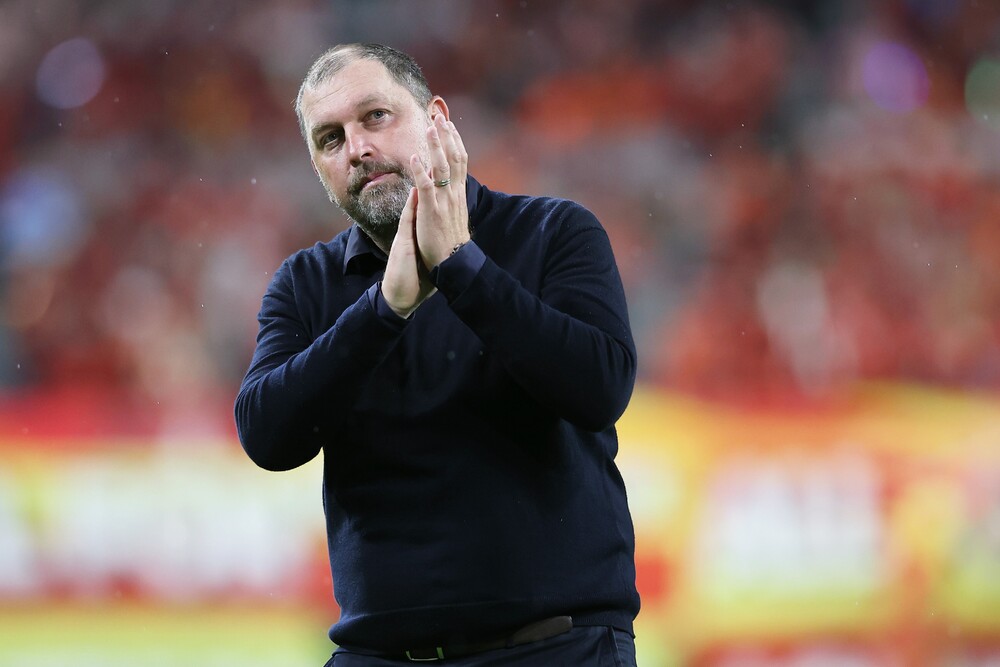
Q: Please summarize the match.
A,it turned out to be a disappointing result. It was a match we could have seized ourselves, and I felt we weren't far from achieving victory, but we made the game difficult for ourselves. I believe that conceding easy goals had a painful impact. I felt we could fight strongly towards the end of the match, but regarding today's game, I think it was a match that became difficult due to our own actions.
Q: The scoring scenes showed your usual strengths, but on the other hand, the number of goals conceded has increased. How do you plan to improve this?
A, first of all, while analyzing the match thoroughly, we conceded a goal in the first half due to a penalty kick. I don't think it was due to our defensive shape, structure, or defensive rules. This is something that can happen in football. Regarding the second goal, I believe there are areas we need to improve, and that became a decisive moment. Up until that point, there were moments where we could have scored, and I felt that if we had taken those chances, we could have turned the game around. However, we allowed Nagoya Grampus to finish decisively, which made things difficult for ourselves.
The third goal conceded was from a set piece. We need to improve in those areas and ensure we don't concede easily. However, I believe this group has developed a mentality to try to catch up after conceding. Nevertheless, we must work on the aspects where we concede easily, and by doing so, we can seize the momentum. If we do that, I believe we can become a really difficult opponent for our rivals and a team that is hard to defeat.
In the final stages, we knew we could fight strongly, and there were good saves by goalkeeper LANGERAK. I think there were also clearances right on the edge of the line. I feel the cost of conceding goals easily in those areas today. It has become a harsh lesson, but I want us to firmly learn from it, recover, and prepare for the next match.
[Player Interview]
<Ryotaro ARAKI>
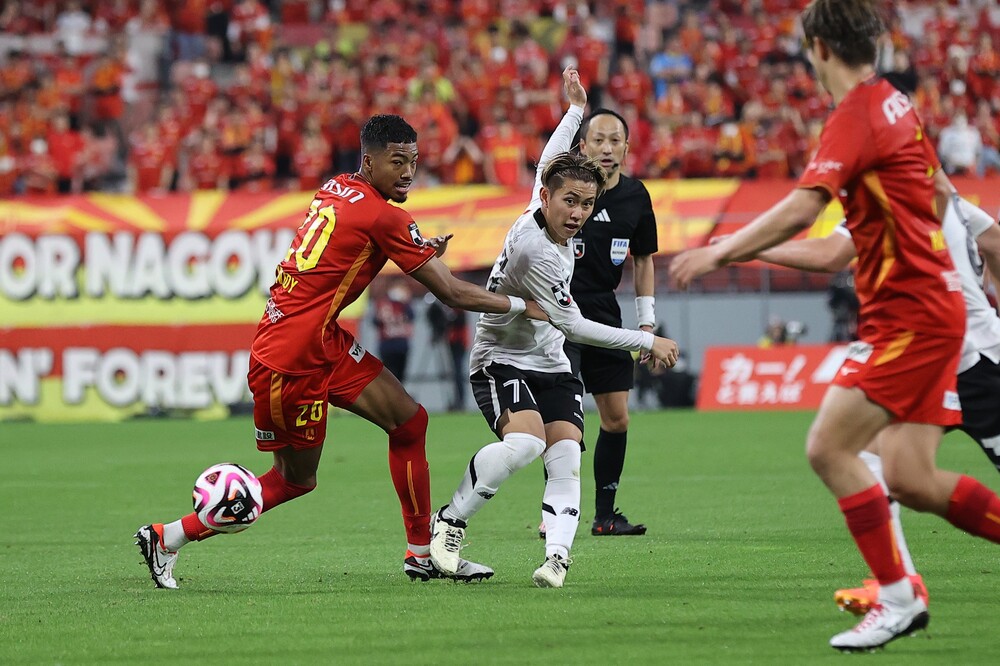
Q: It has been a while since you played in Tokyo.
A, the aspect of defense that does not allow goals is something I recognized as a challenge before I left the team for national duty, and it is an area that we need to improve as a team. No matter how many goals we score, if we keep conceding, it becomes difficult to win, so I want to correct this as a whole team, not just the defensive players.
Q: Please reflect on the scoring scene.
At the moment when Kosuke SHIRAI made a through pass to Yuto NAGATOMO, I initially thought about diving near post, but since the space was closed off, I adjusted my movement anticipating a return ball. The pass came just as I aimed, so I simply positioned myself and calmly made contact.
Q, the gathering of the ball around Ryotaro ARAKI created the formation and fluidity of the attack.
My strength lies in my ability to engage with the ball and build attacks. Since I was on the bench, I wanted to bring about change on the pitch. I was conscious of making plays that could change the flow of the game, and although we lost, I believe I was able to fulfill my role to some extent.
<Kei KOIZUMI>
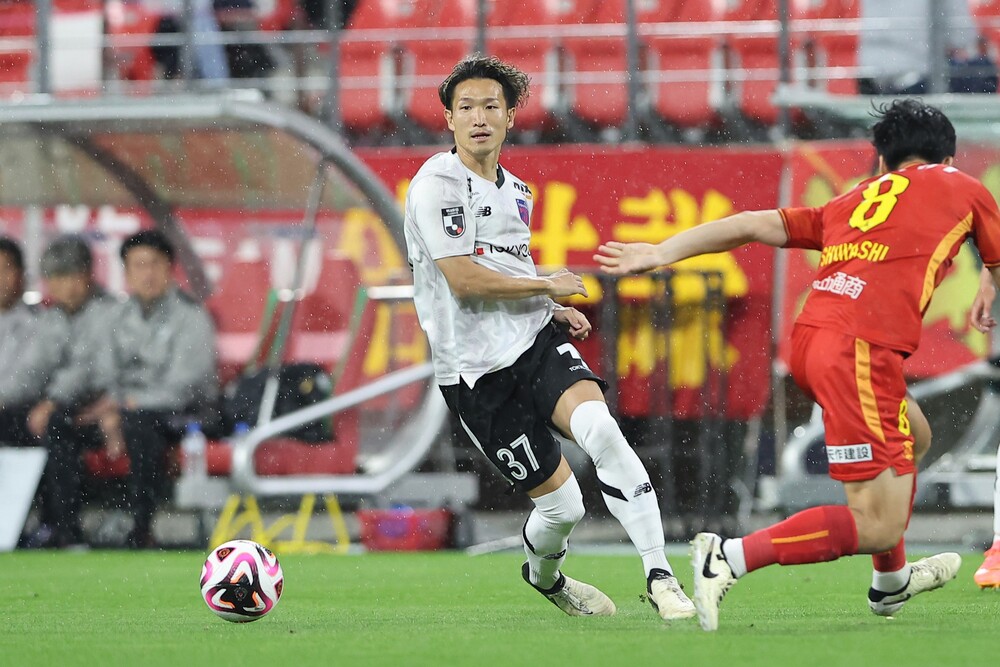
Q, please review the game.
A, I knew from the beginning that the opponent is a team that excels in physicality, winning battles for the ball and second balls, and striking with a counterattack. I believe that if we don't win in terms of physicality a bit more than the opponent, we will end up in situations like this. Fundamentally, it’s about fighting more than the opponent, not just running, but the battle aspect. Especially for players like me who are tasked with playing in the central midfield, if we could have won the second ball battles and handled the chaotic situations better, I think we could have played at our own pace a bit more. Additionally, how to break down the opponent when they sit back a bit is something the team should improve on. Not everything is a negative factor, though.
Q: It seemed that the connecting parts and the parts that dominated the match were expressed similarly to the last few matches, but what do you think were the factors that prevented it from leading to a goal?
In the end, if you don't shoot, you won't score. I think I, along with others, could have been more decisive with the timing of our shots and our overall determination. That's something I want to challenge myself on. However, it's not good to rush and shoot, so I want to improve my judgment and be able to shoot when the opportunity arises.
Q: The matches are continuing in succession. How will the team approach this?
A, the match is coming up soon, and there is no time to look down. No matter how much we discuss it, we can only do it on the pitch. I want to tighten my focus and give it another go.
<Kashif BANGNAGANDE>
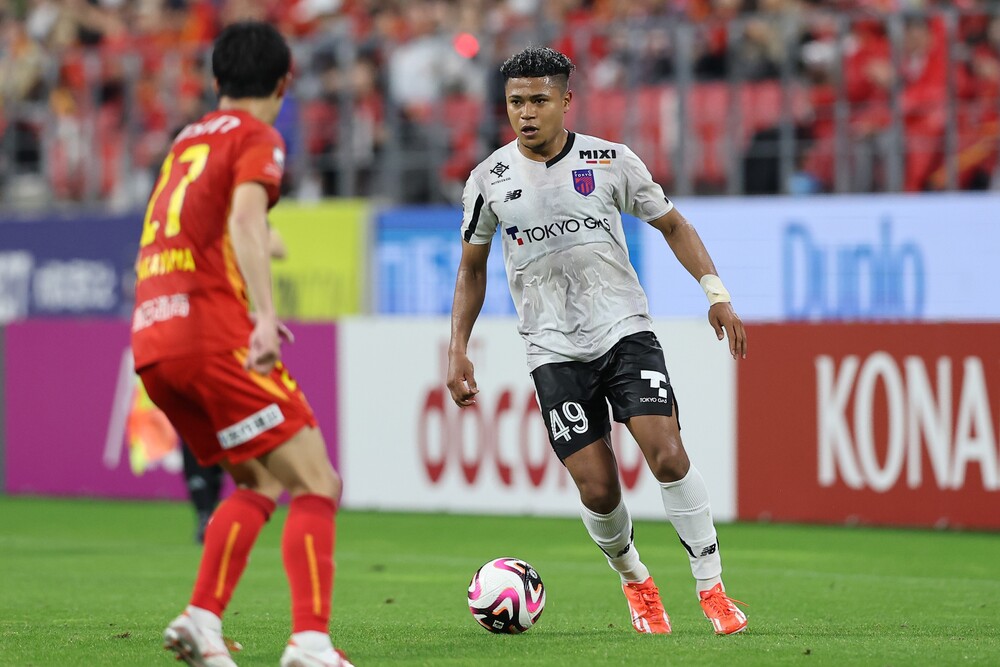
Q, please review the game.
In the first half, we couldn't create a good flow and conceded a goal in a bad way. I think the whole team was running well, but we struggled with our connections. At the end of the second half, we were playing good football, so if we could have done that earlier, I believe we could have controlled the match like we did against Kashiwa Reysol in the first half. We have the next match coming up soon, so we will switch our focus.
Q: There were many scenes where we broke through with good combinations in the side attacks.
There were a few scenes where we broke through with combinations. However, in the first half, especially Kota TAWARATSUMIDA was marked by two players and I was marked by one, so when Kota received the ball, if I had supported him a bit better and created more one-on-one situations, I think it would have led to more attacks, so that's a challenge for the future. There were also scenes that went well, so I want to continue that kind of collaboration and work on correcting the challenges.
Q: In the first half, the opponent had countermeasures against our attacks, especially on the left side.
A, I think things have been going too well until now. When we were doing great, it became a strong point for the team, so the challenge will be how we can adjust on the pitch when we are countered. When things aren't going well like in the first half, we need to communicate more on the pitch. I want to talk not just with Tawaratsukida but with more players to effectively utilize the left side and improve our adaptability.
Q: The matches are continuing in succession. How will you improve the quality?
A, there are many players with unique personalities, so the variety of attacking patterns depending on the players on the field is a characteristic unique to this team. We must maintain that aspect while also seeking results. In the second half, despite having chances, we were unable to convert them. If we can start converting those opportunities, we can become a winning team, so I want to focus on that final aspect. Since we have consecutive matches, we will switch gears, continue what we did well, correct our issues, and prepare for the next match this weekend.

